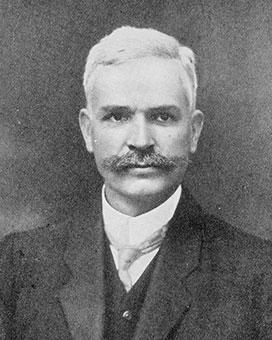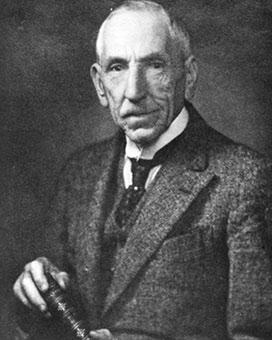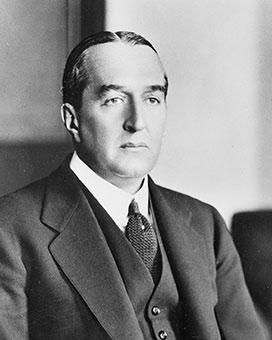Joseph Cook, Australia’s sixth Prime Minister, held office for only 15 months, from 14 June 1913 to 19 September 1914.
Cook’s ministry was sworn in on 24 June 1913 with Cook as Minister for Home Affairs. The 9 ministers were:
- John Forrest (Treasurer)
- William Irvine (Attorney-General)
- Edward Millen (Defence Minister)
- Patrick McMahon Glynn (Minister for External Affairs)
- Littleton Groom (Minister for Trade and Customs)
- Agar Wynne (Postmaster-General)
- John Clemons and William Kelly (ministers without portfolio)
- James McColl (Vice-President of the Executive Council)
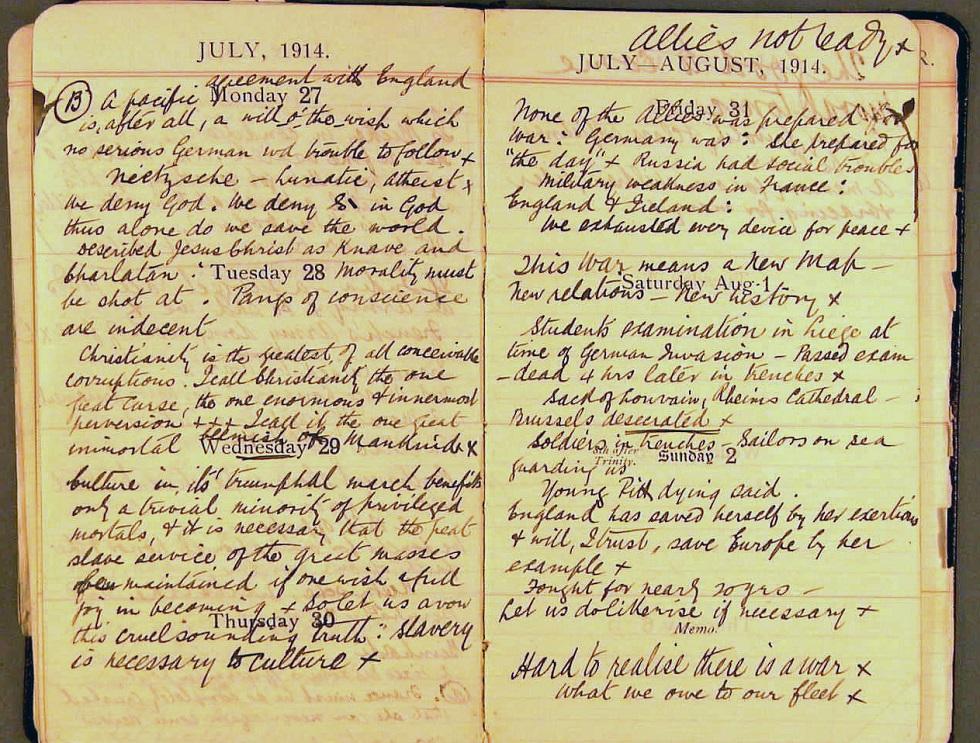
In Joseph Cook's notebook from August 1914, he wrote 'Hard to realise there is a war. What we owe to our fleet'. NAA: M3580, 6, p. 50
Despite the tensions of Cook’s long history with Forrest and with the former Protectionists, he enjoyed relatively genial relations within Cabinet. Cook had an even longer history with Malcolm Shepherd, head of the Prime Minister’s Department, whose opinion of Cook’s management style had changed since they first worked together 20 years earlier. Shepherd noted Cook’s easy manner with senior officials.
Among the events of Cook’s term was the ceremonial arrival of Australia’s new naval fleet in Sydney Harbour on 4 October 1913, led by HMAS Australia.
Cook’s government lasted 15 months. Without a workable majority, there were few initiatives. The government’s greatest accomplishment may have been the double dissolution that ended its term – it was the first in the parliament’s 13 years.
On 4 June 1914, Governor-General Ronald Munro Ferguson approved Prime Minister Joseph Cook’s request for a simultaneous dissolution of the Senate and House of Representatives. The Australian Constitution grants the Governor-General this power. Although Chris Watson had sought a dissolution of the House of Representatives in 1904, and George Reid had sought one in 1905, this was the first time the power was used.
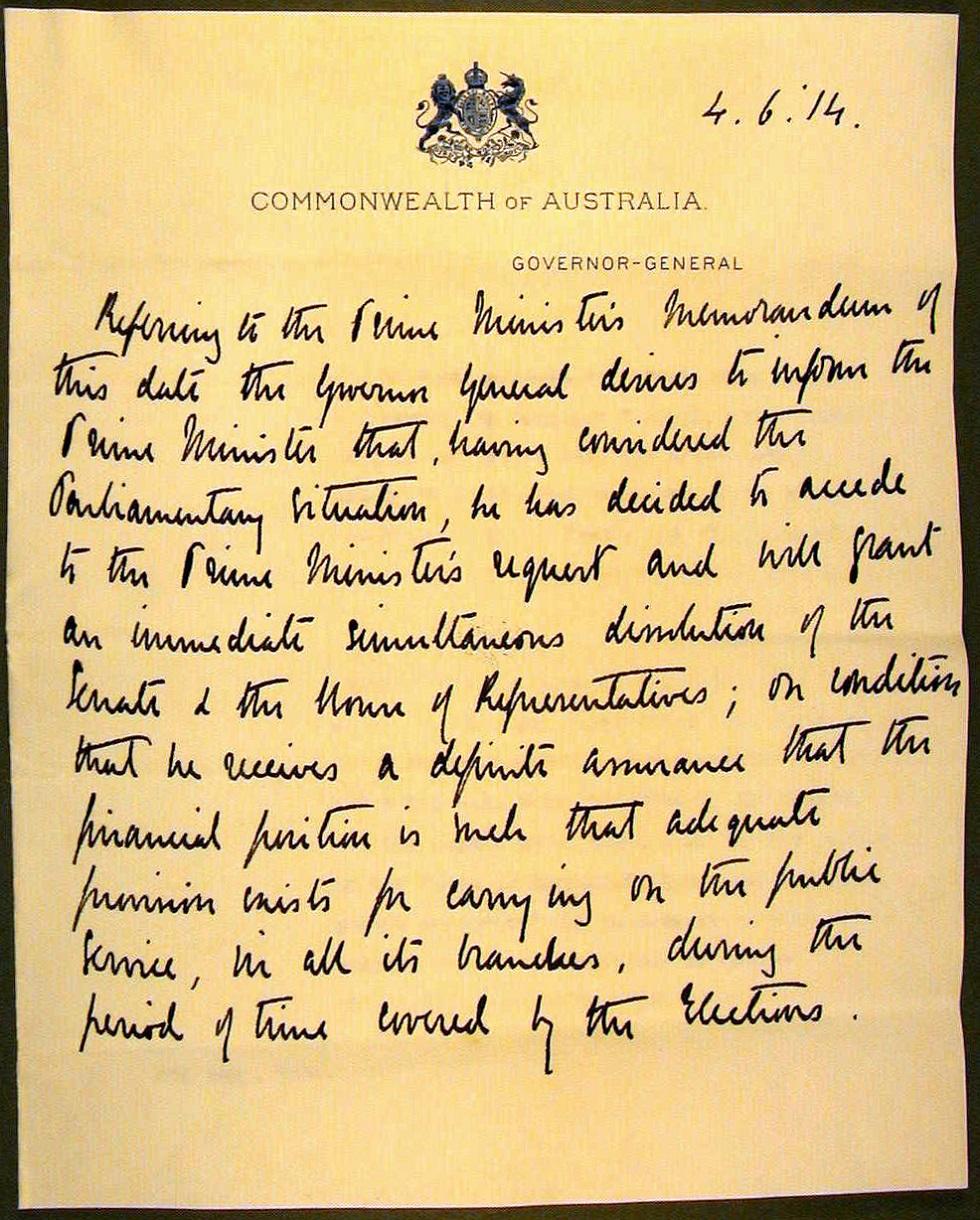
On 4 June 1914, the Governor-General approved Prime Minister Joseph Cook's request for a double dissolution of parliament. This was the first use of this vice-regal power granted by Australia's Constitution. NAA: M3608, 6, p. 24
The election was called for 5 September, but by then a far greater event had occurred – Britain’s declaration of war with Germany on 5 August. As part of the British empire, the dominions, including Australia, were also at war from that day. The government immediately launched its recruiting campaign for the first Australian Imperial Forces, and the preparations already planned were put into action.
In their election campaigns, both Andrew Fisher and Joseph Cook stressed Australia’s unflinching loyalty to Britain, and the nation’s readiness to take its place with the allied countries. Voters returned a Labor government and, with a convincing majority in both Houses, it took office on 17 September.
Sources
- Crowley, FK, ‘Joseph Cook’, in Australian Dictionary of Biography, Vol. 8, Melbourne University Press, Melbourne, 1966.
- Hughes, Colin, Mr Prime Minister: Australian Prime Ministers 1901–1972, Oxford University Press, Melbourne, 1976.
- Rickard, John, ‘Sir Joseph Cook’, in Michelle Grattan (ed.), Australian Prime Ministers, New Holland, Melbourne, 2000.


